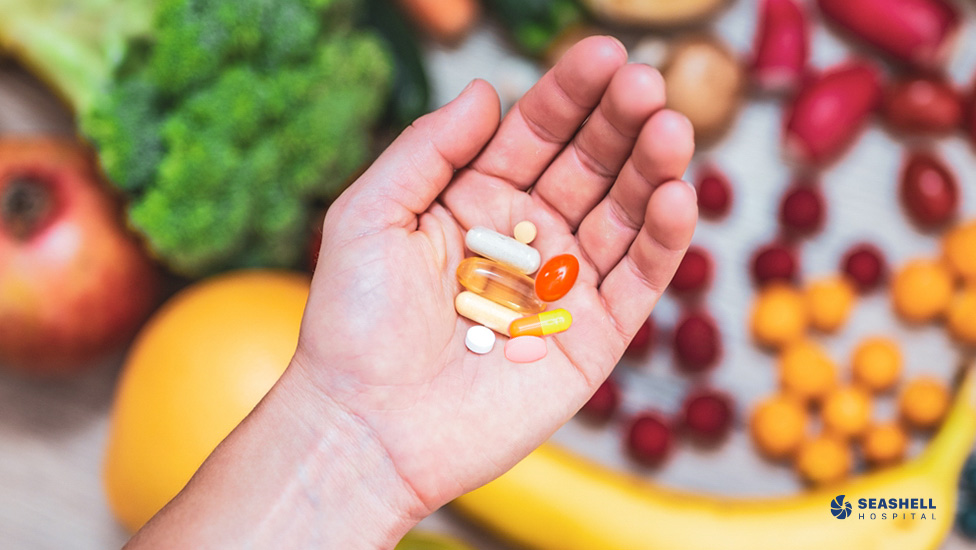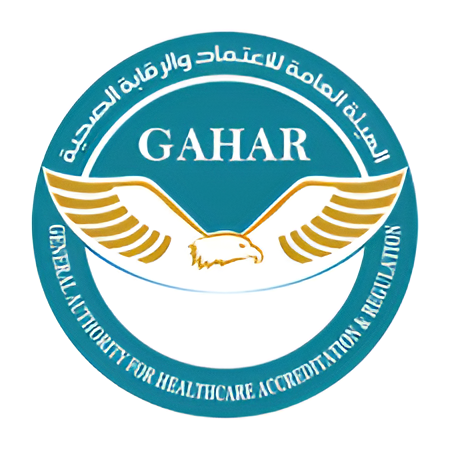 May 22, 2025
May 22, 2025
8 Important Vitamins for the Body
Vitamins are essential substances that the body needs in small amounts for many biological processes, from boosting immunity to supporting growth and development. Although they do not provide energy directly like carbohydrates, proteins, and fats, they act as cofactors in biochemical reactions that convert food into energy and help maintain the health of tissues and organs.
Vitamins are classified into two main types: fat-soluble vitamins, which include four vitamins discussed in this article, and water-soluble vitamins, some of which are also covered here.
1. Vitamin A
Vitamin A is a fat-soluble vitamin available in two forms: retinols, found in animal products, and carotenoids, found in plant sources.
Importance:
- Boosts the immune system in protecting the body against diseases and infections.
- Improves vision in low light conditions.
- Stimulates collagen production and protects the skin from acne.
Natural Sources of Vitamin A:
Since the body does not produce it on its own, it can be obtained from:
- Fish oil
- Animal liver
- Fatty fish like salmon, tuna, and mackerel
- Milk and dairy products like cheese and butter
- Eggs
- Certain vegetables like carrots, red peppers, and sweet potatoes
- Leafy green vegetables like spinach, lettuce, and kale
- Some fruits like mango, pumpkin, cantaloupe, and watermelon
Symptoms of Vitamin A Deficiency:
- Vision problems including night blindness and dry eyes
- Dry skin and acne
- Weak immunity
- Delayed growth in children
- Reproductive health issues in men and women
- Hair loss
Daily Recommended Dose:
The recommended daily intake of Vitamin A for adults is 900 micrograms for men and 700 micrograms for women.
Risks of Excess Vitamin A Consumption:
As Vitamin A is fat-soluble, excess amounts are stored in the liver and fat cells, which can negatively affect the body and cause:
- Nausea and vomiting
- Headaches and dizziness
- Vision problems
- Skin irritation
- Chronic fatigue
- Muscle and joint pain
- Loss of appetite and weight loss
- Birth defects
- Bone weakening
- Liver damage
2. Vitamin B12
Vitamin B12, also known as cobalamin, is a water-soluble vitamin.
Importance:
- Helps in the production of red blood cells
- Enhances the functions of the central nervous system
- Aids in DNA synthesis
- Important for vision, memory, and bone health
- Prevents preterm birth and birth defects
- Linked to bone health
- Improves mood, provides energy, and alleviates symptoms of depression
Natural Sources of Vitamin B12:
The human body does not produce Vitamin B12, so it can be obtained from:
- Meat
- Liver
- Fish
- Milk and dairy products
- Eggs
Symptoms of Vitamin B12 Deficiency:
- Anemia and fatigue
- Pale skin
- Loss of appetite and weight loss
- Tongue inflammation
- Vomiting, diarrhea, and nausea
- Tingling in the hands and feet
- Movement and balance problems in the elderly
Daily Recommended Dose:
The recommended daily intake for adults is 2.4 micrograms.
Risks of Excess Vitamin B12 Consumption:
- Headaches, anxiety, and vomiting
- Skin problems like acne and rashes
- Extreme fatigue
- Numbness and tingling in the limbs
- Reduced liver function
- Difficulty swallowing and breathing
3. Vitamin C
Also known as ascorbic acid, Vitamin C is a water-soluble vitamin and a physiological antioxidant.
Importance:
- Helps in collagen production
- Wound healing
- Boosts the immune system
- Improves iron absorption
- Involved in nerve formation and fast transmission of nerve signals
- Prevents cataracts
Natural Sources of Vitamin C:
Since it is not produced in the body, it can be obtained from:
- Citrus fruits like lemons and oranges
- Green and red peppers
- Leafy vegetables like spinach
- Some fruits like strawberries, kiwi, mango, and cantaloupe
- Potatoes
- Tomatoes
Symptoms of Vitamin C Deficiency:
- Gum inflammation and bleeding
- General weakness
- Joint and muscle pain
- Frequent infections due to weakened immunity
Daily Recommended Dose:
The recommended daily intake for men is 40-90 milligrams, and for women, it is 40-75 milligrams.
Risks of Excess Vitamin C Consumption:
Since it is water-soluble, excess amounts are excreted in urine. However, consuming large quantities can cause:
- Stomach cramps
- Nausea and diarrhea
- Acid reflux
- Increased iron levels, leading to damage to the heart, liver, pancreas, and central nervous system
- Kidney stone formation
4. Vitamin D
Also known as calciferol, Vitamin D is a fat-soluble vitamin.
Importance:
- Facilitates calcium absorption in the intestines and bones
- Maintains appropriate levels of calcium and phosphorus in the blood
- Essential for bone growth and health
- Reduces irritable bowel syndrome
- Regulates blood insulin levels
- Strengthens immunity
Natural Sources of Vitamin D:
Produced naturally in the body upon exposure to ultraviolet rays from the sun and can also be obtained from:
- Fatty fish like salmon and tuna
- Cod liver oil
- Egg yolk
- Beef liver
- Certain types of mushrooms
- Almond and soy milk
- Orange juice
Symptoms of Vitamin D Deficiency:
- Fatigue and general weakness
- Headaches
- Severe bone and muscle pain
- Lethargy and drowsiness
- Anxiety and mood swings
Daily Recommended Dose:
The recommended daily intake is 15 micrograms or 600 international units for adults, both men and women.
Risks of Excess Vitamin D Consumption:
- Increased calcium levels in the blood
- Frequent urination
- Frequent vomiting
- Back pain
- Dehydration and increased thirst
- Poor concentration
- Loss of appetite and constipation
5. Vitamin E
Comprises 8 fat-soluble compounds, with alpha-tocopherol being the most compatible with the body’s needs.
Importance:
- Antioxidant, reducing the risk of cancer
- Maintains skin freshness and treats acne scars
- Boosts the immune system
- Prevents blood clots
Natural Sources of Vitamin E:
- Wheat germ oil
- Dry roasted sunflower seeds
- Roasted nuts like almonds
- Some fruits like kiwi, mango, and avocado
- Peanuts and peanut butter
- Red pepper
- Fish
Symptoms of Vitamin E Deficiency:
Rare due to its availability in many food sources, but individuals with digestive disorders and fat malabsorption may exhibit:
- Retinal damage affecting vision
- Tingling and numbness in the limbs
- Difficulty controlling body movements
- Weak immune system
Daily Recommended Dose:
The recommended daily intake is 15 milligrams for adults, both men and women.
Risks of Excess Vitamin E Consumption:
- Increased risk of prostate cancer in men
- Reduced blood clotting and increased bleeding risk
- Muscle weakness
- Fatigue and nausea
6. Vitamin K
A fat-soluble vitamin.
Importance:
- Blood clotting during wounds or bleeding
- Prevents osteoporosis
- Supports heart and vascular health
Natural Sources of Vitamin K:
- Leafy green vegetables like broccoli and spinach
- Legumes
- Vegetable oils like olive oil
- Eggs
- Meat
- Cranberries
- Grapes
Symptoms of Vitamin K Deficiency:
- Frequent bleeding
- Skin bruising
- Small blood clots under the nails
- Dark-colored stool containing some blood
Daily Recommended Dose:
The recommended daily intake is 120 micrograms for men and 90 micrograms for women.
Risks of Excess Vitamin K Consumption:
- Nausea and diarrhea
- Lethargy
- Liver enlargement
- Muscle stiffness
7. Vitamin B6
Also known as pyridoxine, it is a water-soluble vitamin.
Importance:
- Improves mood and reduces depression symptoms
- Prevents Alzheimer’s
- Prevents anemia
- Forms antibodies in the blood
Symptoms of Vitamin B6 Deficiency:
- Increased susceptibility to diseases and infections due to weakened immunity
- Sleep and mood disorders
- Digestive disorders
- Skin inflammation
Daily Recommended Dose:
The recommended daily intake for adult men up to 50 years is 1.3 milligrams, and for those over 50 years, it is 1.7 milligrams. For adult women up to 50 years, it is 1.2 milligrams, and for those older, it is 1.5 milligrams.
Risks of Excess Vitamin B6 Consumption:
- Nerve damage
- Tingling and numbness in the limbs
- Difficulty controlling muscles
- Nausea
- Light sensitivity
8. Folic Acid (Vitamin B9)
A water-soluble vitamin.
Importance:
- Prevents anemia
- Reduces the risk of birth defects
- Reduces the risk of certain cancers
- Supports brain function and prevents dementia
Natural Sources of Folic Acid:
- Liver
- Oranges
- Whole grains
- Eggs
- Legumes
- Leafy green vegetables
Symptoms of Folic Acid Deficiency:
- Fatigue and general weakness
- Shortness of breath
- Mouth ulcers and tongue pain
- Cognitive issues like forgetfulness
- Growth problems in children
Daily Recommended Dose:
The recommended daily intake is 400 micrograms for adults. Pregnant women should take 600 micrograms, and breastfeeding women should take 500 micrograms.
Risks of Excess Folic Acid Consumption:
- Masking Vitamin B12 deficiency symptoms
- Cognitive issues in elderly
- Increased risk of certain cancers
This highlights the importance of vitamins for overall health and vital bodily functions. While it’s best to get them from natural food sources, some people might need supplements to address specific deficiencies. Consulting a doctor is essential to determine the right dosage based on individual health and needs.
